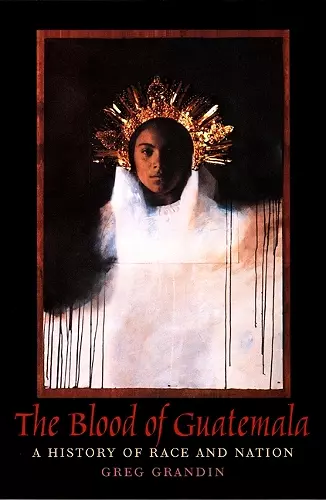The Blood of Guatemala
A History of Race and Nation
Format:Paperback
Publisher:Duke University Press
Currently unavailable, and unfortunately no date known when it will be back

A study of the political and cultural formation of one of Guatemala's indigenous communities that explores the nationalisation of ethnicity, the preservation of Mayan identity, and the formation of a brutally repressive state.
Over the latter half of the twentieth century, the Guatemalan state slaughtered more than two hundred thousand of its citizens. In the wake of this violence, a vibrant pan-Mayan movement has emerged, one that is challenging Ladino (non-indigenous) notions of citizenship and national identity. This book deals with this topic.Over the latter half of the twentieth century, the Guatemalan state slaughtered more than two hundred thousand of its citizens. In the wake of this violence, a vibrant pan-Mayan movement has emerged, one that is challenging Ladino (non-indigenous) notions of citizenship and national identity. In The Blood of Guatemala Greg Grandin locates the origins of this ethnic resurgence within the social processes of eighteenth- and nineteenth-century state formation rather than in the ruins of the national project of recent decades.
Focusing on Mayan elites in the community of Quetzaltenango, Grandin shows how their efforts to maintain authority over the indigenous population and secure political power in relation to non-Indians played a crucial role in the formation of the Guatemalan nation. To explore the close connection between nationalism, state power, ethnic identity, and political violence, Grandin draws on sources as diverse as photographs, public rituals, oral testimony, literature, and a collection of previously untapped documents written during the nineteenth century. He explains how the cultural anxiety brought about by Guatemala’s transition to coffee capitalism during this period led Mayan patriarchs to develop understandings of race and nation that were contrary to Ladino notions of assimilation and progress. This alternative national vision, however, could not take hold in a country plagued by class and ethnic divisions. In the years prior to the 1954 coup, class conflict became impossible to contain as the elites violently opposed land claims made by indigenous peasants.
This “history of power” reconsiders the way scholars understand the history of Guatemala and will be relevant to those studying nation building and indigenous communities across Latin America.
“Anyone interested in Latin American history will enjoy this myth-and-stereotype-shattering study of Mayan cultural and national identity as it has evolved over centuries in one region of Guatemala, ‘Los Altos.’ Thick with novelistic detail and anecdote, brilliantly and imaginatively researched, totally engrossing in its melding of convincing analysis and strong narrative sweep, Grandin takes us to a ‘high placee’ and guides us back over the tangled, treacherous paths that led there.”—Francisco Goldman
“Bold, fascinating, and important, The Blood of Guatemala is a model of careful, yet highly innovative and original scholarship. Grandin has gone well beyond fine research to create a powerful narrative of two important centuries’ worth of Guatemalan history. Its many different dimensions—political, economic, social, demographic—form a histore totale.”—John Demos, Yale University
“Brilliant, bold, and beautifully written from the first page to the last, The Blood of Guatemala convincingly challenges previous interpretations of the histories of ethnicity, commmunity, state, nation, and nationalism in Guatemala. Greg Grandin has skillfully united the disciplines of history and anthropology; he is part of a new generation of committed, sophisticated, and clearheaded intellectuals.”—Deborah Levenson, Boston College
ISBN: 9780822324959
Dimensions: unknown
Weight: 585g
368 pages